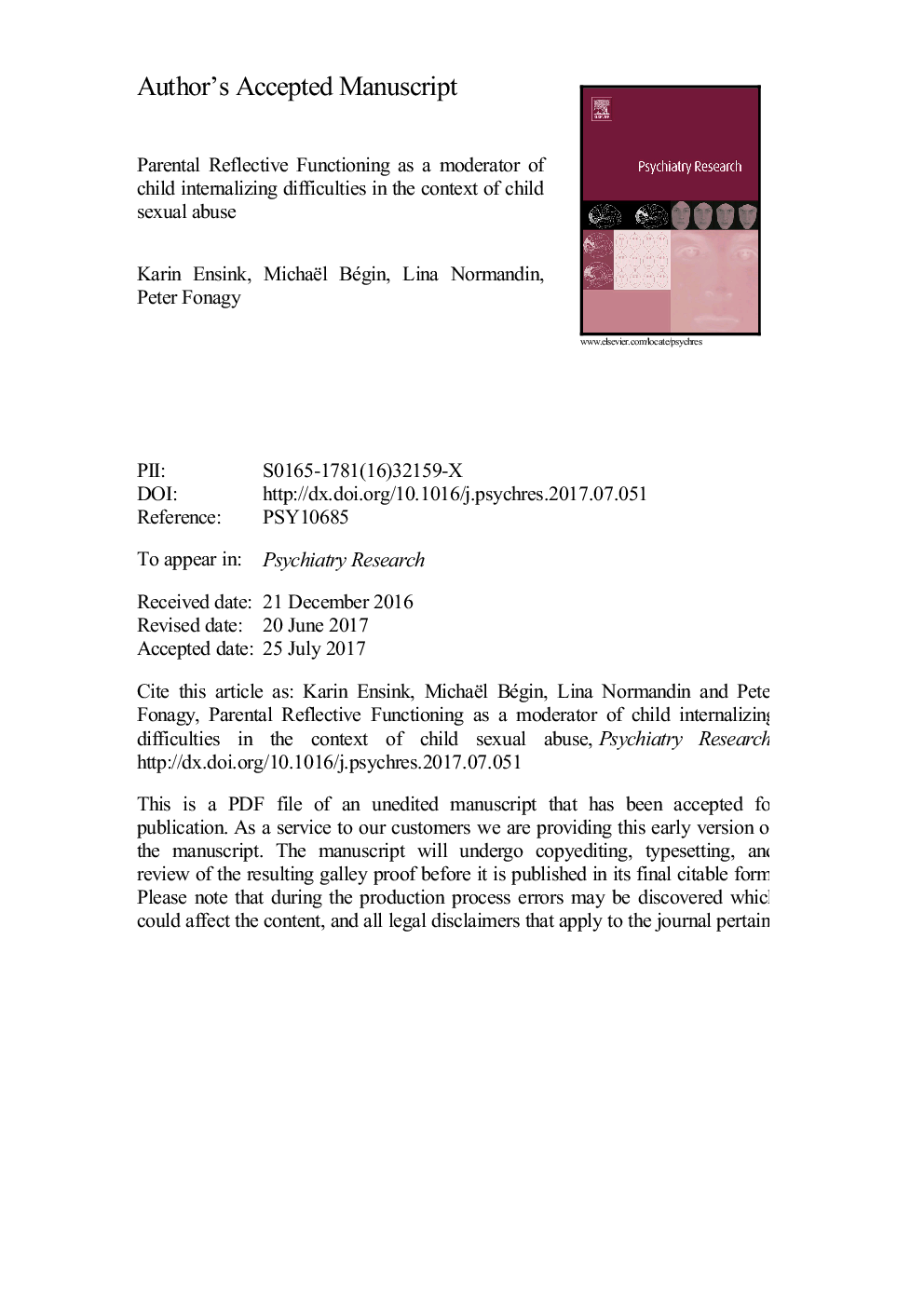ترجمه فارسی عنوان مقاله
بازتاب دهنده عملکرد والدین به عنوان یک مدیر از مشکلات درونی کودک در زمینه سوء استفاده جنسی از کودک است
عنوان انگلیسی
Parental reflective functioning as a moderator of child internalizing difficulties in the context of child sexual abuse
| کد مقاله | سال انتشار | تعداد صفحات مقاله انگلیسی |
|---|---|---|
| 116106 | 2017 | 25 صفحه PDF |
منبع

Publisher : Elsevier - Science Direct (الزویر - ساینس دایرکت)
Journal : Psychiatry Research, Volume 257, November 2017, Pages 361-366
ترجمه کلمات کلیدی
عملکرد بازتاب مادری، ممتاز شدن، سوء استفاده جنسی از کودک، مشکلات داخلی، مشکلات خارجی،
کلمات کلیدی انگلیسی
Maternal reflective functioning; Mentalizing; Child sexual abuse; Internalizing difficulties; Externalizing difficulties;

